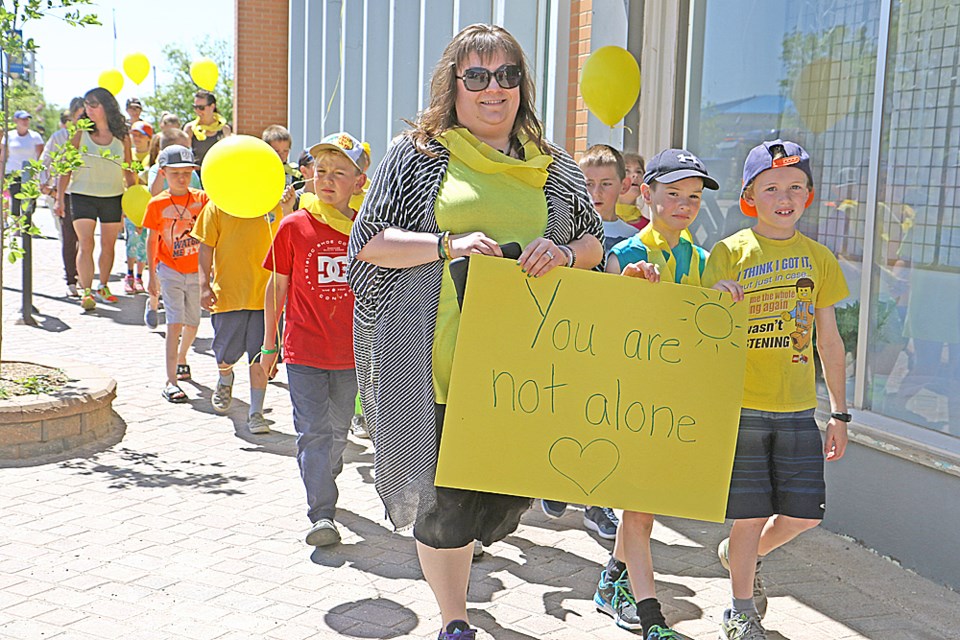TISDALE — Emma Small was one of around 30 people to participate in a mental health awareness walk in Tisdale.
“I came for the awareness [walk],” she said after the May 28 walk.
“They lost their grandpa to suicide about six weeks ago, so they came out to remember poppa Lance,” said her mother, Erin Small. “That’s why they came today, to have a good memory of him and remember.”
“I would always remember somebody when they die in my family,” Emma added.
Erin Small is also the chair of the Tisdale Suicide Awareness Committee, which organized the walk. The walk started at the town square and went down Main Street until it reached 103 Avenue, at which point it turned back.
“May is mental health awareness month, so we wanted to create an event that we could get people together and promote mental health awareness, as well as show people they’re not alone.”
Suicide rates in the Northeast are higher than the national average.
“With every population it’s different and we don’t really have an answer why it’s higher around here,” Small said. “That’s why we’re trying to create awareness and show people that it’s okay to get help and okay to talk about their problems and know they have support.”
About 75 per cent of people who have attempted suicide give warning signs before committing to the act.
Verbal signs include saying things like “my family and friends don’t care,” “life isn’t worth living,” “people are better off without me,”“everything I do goes wrong” and “I don’t need this anymore.”
Non-verbal signs include giving away personal possessions, increased alcohol or drug use, sleeping too much or too little, lack of interest in friends, lack of interest in personal appearance, lack of interest in school or work that was formerly of interest, poor performance in school or work, or boredom, restlessness and loss of concentration.
To help somebody that might be thinking about suicide, it’s important to openly and freely ask direct questions about the person’s intentions, to listen to what they said and treat it seriously, never leave a person who is suicidal alone, and to encourage the person to seek some professional help.
If you are thinking about suicide, Small said there’s support out there.
“If they’re thinking about suicide, if it’s really imminent, they need to go to the hospital and be assessed by a physician,” she said.
“They can call the crisis line, they can call 811, they can reach out to family or a friend.”
It’s important to reach out when you need it, said Small, adding that people shouldn’t feel embarrassed or ashamed for needing that extra help.




